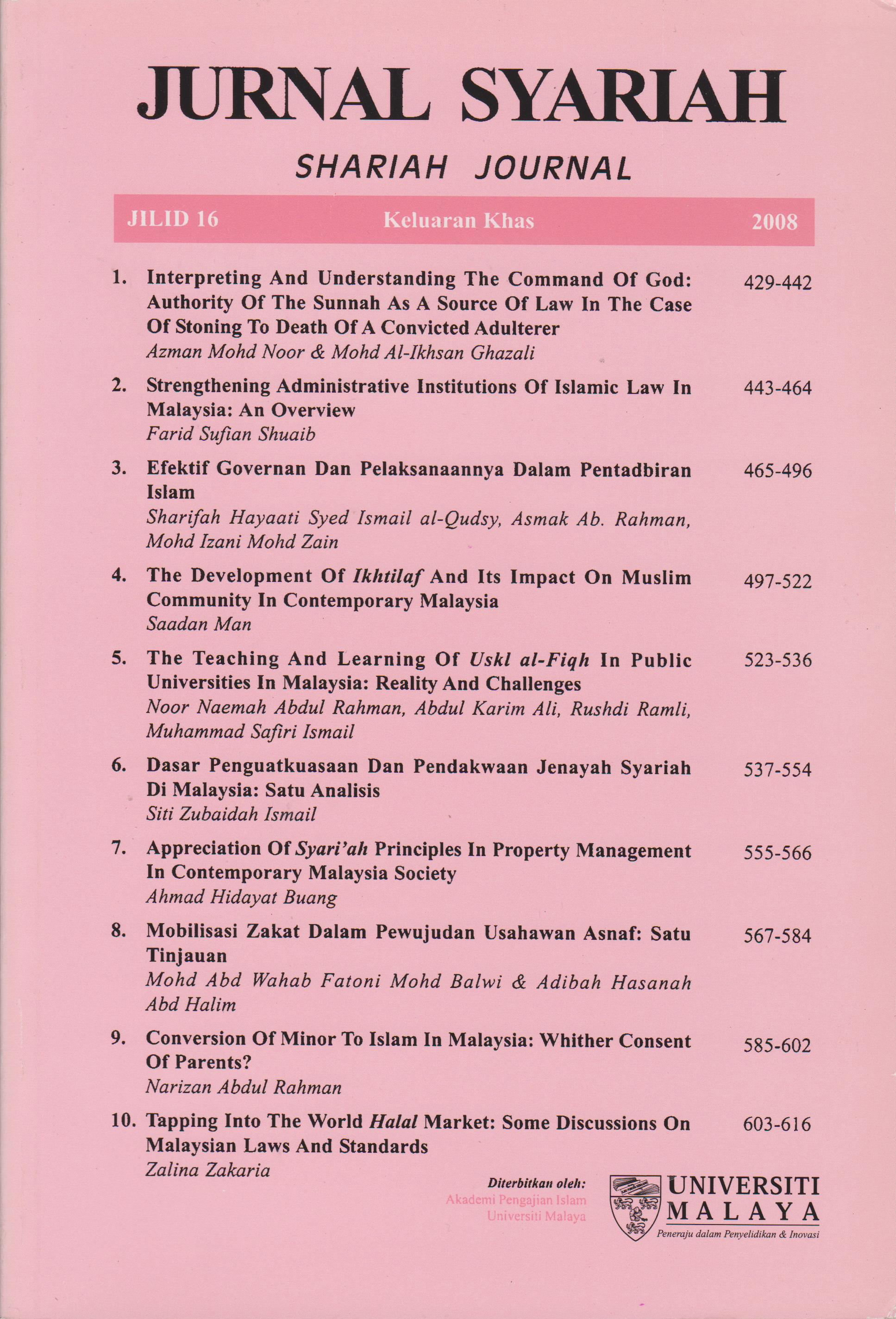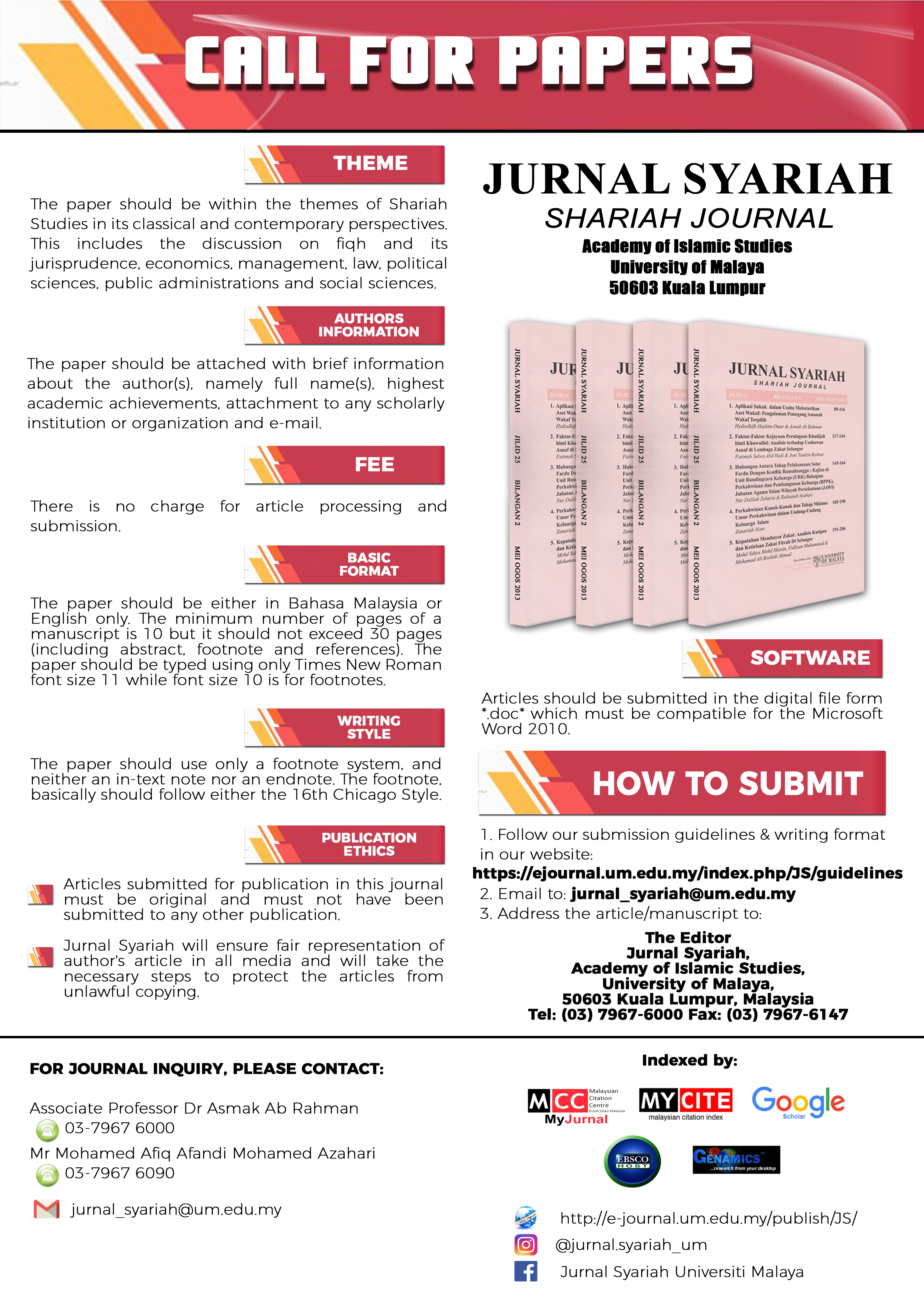FAMILY TAKAFUL: IT’S ROLE IN SOCIAL ECONOMIC DEVELOPMENT AND AS A SAVINGS AND INVESTMENT INSTRUMENT IN MALAYSIA – AN EXTENSION
Keywords:
Family takaful, social economic development, saving instrument, invenstment instrumentAbstract
This study has dual objectives: first, to investigate whether any
relationships exist between the macro economic variables and
the demand for family takaful (Islamic life insurance) in Malaysia.
Second, to examine whether the establishment of takaful
institutions has produced a positive social economic impact in
Malaysia as measured by the economic indicators. Islamic life
insurance or family takaful, is a form of savings instrument that
is popular among Malaysian Muslims in general and has its
appeal due to its shari‘ah compliant attributes compared to
conventional life insurance products. This study found that from
the time of inception, Takaful Malaysia and Takaful Nasional in
1984 and 1994 respectively, their existence has had a healthy
impact on the socio economy of the country. This is attested by
the effect that the positive employment increment and its profit
before tax and zakat (tithe) has on the economy. Being the pioneer
in offering shari‘ah compliant insurance products, Takaful
Malaysia’s profit performance and its capacity to generate new
business in the form of premium or contribution is directly affected
by the macro-economic variables, as measured by Malaysia’s gross
domestic product, consumer price index and treasury bills or
short-term interest rates. If this trend continues, then it is signalling
to the government the necessity to provide a conducive economic
environment that will ensure this business activity continues to
flourish in Malaysia. Lastly, it is common knowledge that 90
percent of the Muslim market, comprising the indigenous race or
Malays, have not purchased any form of life insurance or family
takaful, thus, it is pertinent that the Central Bank of Malaysia,
the regulatory body of financial institutions in Malaysia, considers
issuing new licences to would-be takaful operators to provide a
wider offering of takaful products that would appeal to this
untapped market.
Downloads
Downloads
Published
How to Cite
Issue
Section
License
COPYRIGHT: All rights reserved. Not allowed to be reproduced any part of articles and contents of this journal in any form or by any way, whether electronic, mechanical, photocopying, recording or otherwise without permission in writing from the Chief Editor, Jurnal Syariah.



















